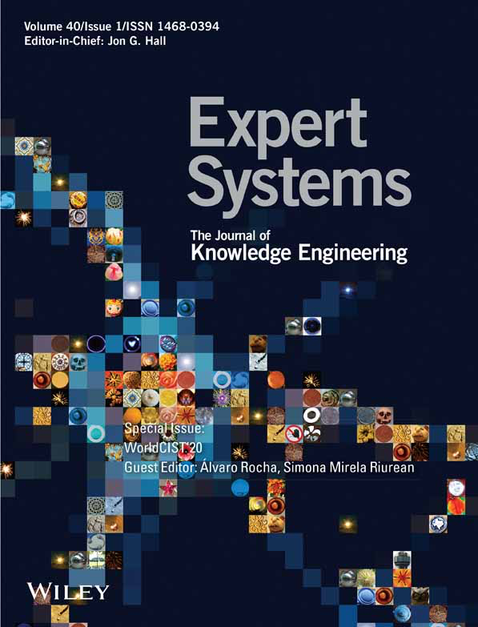MalUncover
Uncovering and Preventing Malicious Activities in Social Networks using Data Science and Machine Learning
October 9-13, 2023
Thessaloniki, Greece

Image generated with DALLE-2 AI model
Paper submission: May 22, 2023
Malicious activities on social networks pose a significant threat to individuals, organizations, and society at large. They imply engagement in a range of harmful activities, including spreading false information, conducting fraudulent transactions, engaging in cyberbullying, and targeting vulnerable individuals for exploitation. To combat these threats, data scientists and machine learning experts are developing new and advanced AI models for detecting and mitigating the impact of these activities on social networks.
This special session at the 10th IEEE International Conference on Data Science and Advanced Analytics will focus on the latest research and developments in AI models for securing social networks from malicious activities. Papers will cover a range of technical topics, including new deep learning models that use or combine text, image, and video modalities for identifying malicious activities; graph neural networks for mapping their networks; and adversarial machine learning approaches for identifying patterns and anomalies that may indicate the presence of malicious activities.
The session will also explore the use of AI single modality, but also multimodal models. in real-world scenarios, such as identifying and mitigating fake news, preventing cyberbullying, and detecting fraudulent transactions on social networks. Presenters will showcase the latest techniques and best practices for implementing these models in production systems and evaluating their performance.
Overall, this special session provides an opportunity for researchers, practitioners, and experts to collaborate and share knowledge on advanced AI models for securing social networks from malicious activities. By bringing together diverse perspectives and expertise, we hope to accelerate the development of new and effective approaches and solutions for early detection and prevention of malicious activities on social networks, and ultimately help create a safer and more secure online environment for all users.
Aims and scope
The aims of this Special Session involve fostering collaboration and networking among experts in the field of data science and machine learning with a focus on social network analysis, providing a space to present and discuss new trends, models, applications and techniques for identifying malicious activities that occur in Social Networks. Special emphasis will be given to research that explores multimodal models, aiming to extract all possible useful information available in a Social Network to profile users and detect malicious activities.
The scope of this special session includes, but is not limited to, the following topics:
- Multimodal models for the detection of malicious activities in Social Networks
- Multimodal models focused on Social Networks
- Misinformation campaigns profiling or tracking
- Hate speech, harmful content and toxicity detection
- Authorship verification, profiling and attribution.
- Rumor and check-worthiness detection
- Early detection techniques against harmful content.
- Misinformation/disinformation detection and prevention
- Methods for malicious activities profiling
- Natural Language Processing for Social Network Analysis
- NLP and SNA methods for cybercrime prevention
- XAI solutions
- David Camacho, Universidad Politécnica de Madrid, Spain. david.camacho@upm.es
- Ioannis (Yiannis) Kompatsiaris, The Centre for Research & Technology, Hellas - CERTH Greece. ikom@iti.gr
- Alejandro Martín, Universidad Politécnica de Madrid, Spain. alejandro.martin@upm.es
- Budi Arief, University of Kent, United Kingdom. B.Arief@kent.ac.uk
- Javier Huertas-Tato, Universidad Politécnica de Madrid, Spain. javier.huertas.tato@upm.es
- Arkaitz Zubiaga, Queen Mary University of London, United Kingdom. a.zubiaga@qmul.ac.uk
Dates
- Paper submission: May 22, 2023
- Paper Notification: July 17, 2023
- Paper Camera-ready: August 7, 2023
Paper submission
- The length of each paper submitted should be no more than ten (10) pages and should be formatted following the standard 2-column U.S. letter style of IEEE Conference template. For further information and instructions, see the IEEE Proceedings Author Guidelines.
- All submissions will be blind reviewed by the Program Committee on the basis of technical quality, relevance to the conference’s topics of interest, originality, significance, and clarity. Author names and affiliations must not appear in the submissions, and bibliographic references must be adjusted to preserve author anonymity. Submissions failing to comply with paper formatting and authors anonymity will be rejected without reviews.




Organizers
David Camacho, Universidad Politécnica de Madrid, Spain. david.camacho@upm.es (contact person)
Dr. David Camacho is full professor at Computer Systems Engineering Department of Universidad Politécnica de Madrid (UPM), and the head of the Applied Intelligence and Data Analysis research group (AIDA: https://aida.etsisi.uam.es) at UPM. He has published more than 300 journals, books, and conference papers. His research interests include Machine Learning (Clustering/Deep Learning), Computational Intelligence (Evolutionary Computation, Swarm Intelligence), Social Network Analysis, Fake News and Disinformation Analysis. He has participated/led more than 50 research projects (Spanish and European: H2020, DG Justice, ISFP, and Erasmus+). He serves as Editor in Chief of Expert Systems from 2023, and sits on the Editorial Board of several journals including Information Fusion, IEEE Transactions on Emerging Topics in Computational Intelligence (IEEE TETCI), Human-centric Computing and Information Sciences (HCIS), and Cognitive Computation among others.
Ioannis (Yiannis) Kompatsiaris, The Centre for Research & Technology, Hellas - CERTH Greece. ikom@iti.gr
Dr. Ioannis (Yiannis) Kompatsiaris is the Director of the Information Technologies Institute, Research Director at CERTH-ITI and the Head of Multimedia Knowledge and Social Media Analytics Laboratory. His research interests include ΑΙ/Machine Learning for multimedia analysis, Semantics (multimedia ontologies and reasoning), Social Media and Big Data Analytics, Multimodal and Sensors Data Analysis, Human Computer Interfaces, e- Health, Arts and Cultural, Media/Journalism, Environmental and Security applications. He is the co-author of 178 papers in refereed journals, 63 book chapters, 8 patents and 560 papers in international conferences. Since 2001, Dr. Kompatsiaris has participated in 88 National and European research programs, in 31 of which he has been the Project Coordinator. He has also been the PI in 15 contracts from the industry. He has been the co- chair of various international conferences and workshops including the 13th IEEE Image, Video, and Multidimensional Signal Processing (IVMSP 2018) Workshop and has served as a regular reviewer, associate and guest editor for a number of journals and conferences currently being an associate editor of IEEE Transactions on Image Processing.
Alejandro Martín, Universidad Politécnica de Madrid, Spain. alejandro.martin@upm.es
Dr. Alejandro Martín is Associate Professor at Universidad Politécnica de Madrid. His main research interests are Deep Learning, Cybersecurity, and Natural Language Processing. He has been a visiting researcher at the University of Kent. Besides has participated in an important number of international conferences as a reviewer and organizer, as a reviewer and Guest Editor in international journals, and in a large number of research projects. He is the PI of several research projects focused on the fight against misinformation and mitigation of malicious activities in Social Networks.
Budi Arief, University of Kent, United Kingdom. B.Arief@kent.ac.uk
Dr Budi Arief is a Senior Lecturer at the School of Computing, and the Innovation Lead at the Institute of Cyber Security for Society (iCSS), both at the University of Kent, UK. His main research areas are cybercrime and computer security (most recently, ransomware and the Internet of Things), with a strong overarching element of interdisciplinary research. Budi has also worked in the areas of dependability of computer-based systems, the application of wireless sensor networks in the intelligent transport system domain, distributed systems (including performance modeling and simulation), software engineering (in particular, open source software), as well as a growing interest in machine learning and big data. He is currently one of the PC Co-Chairs of the 9th International Symposium on Security and Privacy in Social Networks and Big Data (SocialSec 2023).
Javier Huertas-Tato, Universidad Politécnica de Madrid, Spain. javier.huertas.tato@upm.es
Dr Javier Huertas-Tato is currently Assistant Professor at Universidad Politéctnica de Madrid. His main interests rely in Deep Neural Networks, Social Media Content Analysis, Natural Language Processing and Multimodal learning. He collaborates with international research projects related to disinformation and malicious activities on social media. Also collaborated as a program committee in international conferences and as a reviewer in international journals. Finally, he has been a visiting researcher at the ITI-CERTH.
Arkaitz Zubiaga, Queen Mary University of London, United Kingdom. a.zubiaga@qmul.ac.uk
Dr. Arkaitz Zubiaga is a senior lecturer (associate professor) at Queen Mary University of London, where he leads the Social Data Science lab. His research revolves around Social Data Science, interdisciplinary research bridging Computational Social Science and Natural Language Processing. He's particularly interested in linking online data with events in the real world, among others for tackling problematic issues on the Web and social media that can have a damaging effect on individuals or society at large, such as hate speech, misinformation, inequality, biases and other forms of online harm. He serves in the editorial boards of 7 journals, is a regular SPC member of top conferences in computational social science and NLP, and has published over 140 peer reviewed papers, including 50+ journal articles.
Program committee
- Angel Panizo, Universidad Politécnica de Madrid, Spain
- Javier Huertas-Tato, Universidad Politécnica de Madrid, Spain
- Ioannis Kompatsiaris, Information Technologies Institute – CERTH, Greece
- Arkaitz Zubiaga, Queen Mary University of London
- Irene Amerini, Sapienza University of Rome, Italy
- Mauro Conti, University of Padova
- Giovanni Da San Martino, University of Padova
- Erik Cambria, Nanyang Technological University, Singapore
- Soujanya Poria, Singapore University of Technology and Design, Singapore.
- Antonio González-Pardo, Universidad Rey Juan Carlos, Spaines
- Eugenio Martínez, Universidad de Granada, Spain
- Amir Hussain, University of Stirling, UK
- Giancarlo Fortino, University of Calabria, Italy
- Julio Amador Díaz, Imperial College London, UK
- Diego Reforgiato Recupero, Università degli Studi di Cagliari, Italy
- Sergio D’Antonio Maceiras, Universidad Politécnica de Madrid, Spain.
- Paolo Rosso, Universitat Politècnica de València, Spain
- Berta Chulvi, Universitat Politècnica de València, Spain
Program
TBD
Best paper award
A selected best paper from DSAA-MalAct 2023, will be invited to publish, via fast track, an extended version in Wiley's Expert Systems Journal
